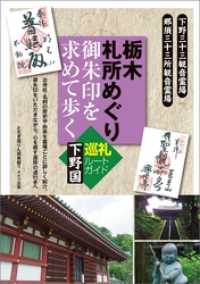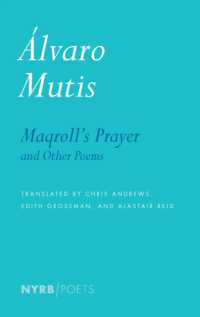- ホーム
- > 洋書
- > 英文書
- > Literary Criticism
Full Description
An Open Access edition of this book is available on the Liverpool University Press website and through Knowledge Unlatched.
Disabled Bodies in Early Modern Spanish Literature: Prostitutes, Aging Women and Saints examines the concepts and role of women in selected Spanish discourses and literary texts from the late fifteenth to seventeenth centuries from the perspective of feminist disability theories. This study explores a wide range of Spanish medical, regulatory and moral discourses, illustrating how such texts inherit, reproduce and propagate an amalgam of Western traditional concepts of female embodiment. It goes on to examine concrete representations of deviant female characters, focusing on the figures of syphilitic prostitutes and physically decayed aged women in literary texts such as Celestina, Lozana andaluza and selected works by Cervantes and Quevedo. Finally, an analysis of the personal testimony of Teresa de Avila, a nun suffering neurological disorders, complements the discussion of early modern women's disability. By expanding the meanings of contemporary theories of materiality and the social construction of disability, the book concludes that paradoxically, femininity, bodily afflictions, and mental instability characterized the new literary heroes at the very time Spain was at the apex of its imperial power. Ultimately, as this study shows, the broken female bodies of pre-industrial Spanish literature reveal the cracks in the foundational principles of power and established truths.
Contents
Introduction
1. The Creation of Female Disability: Medical, Prescriptive and Moral Discourses
2. The Artifice of Syphilitic and Damaged Female Bodies in Literature
3. The Disabling of Aging Female Bodies: Midwives, Procuresses, Witches and the Monstrous Mother
4. Historical Testimony of Female Disability: The Neurological Impairment of Teresa de Avila
Conclusions
Works Cited
Index







